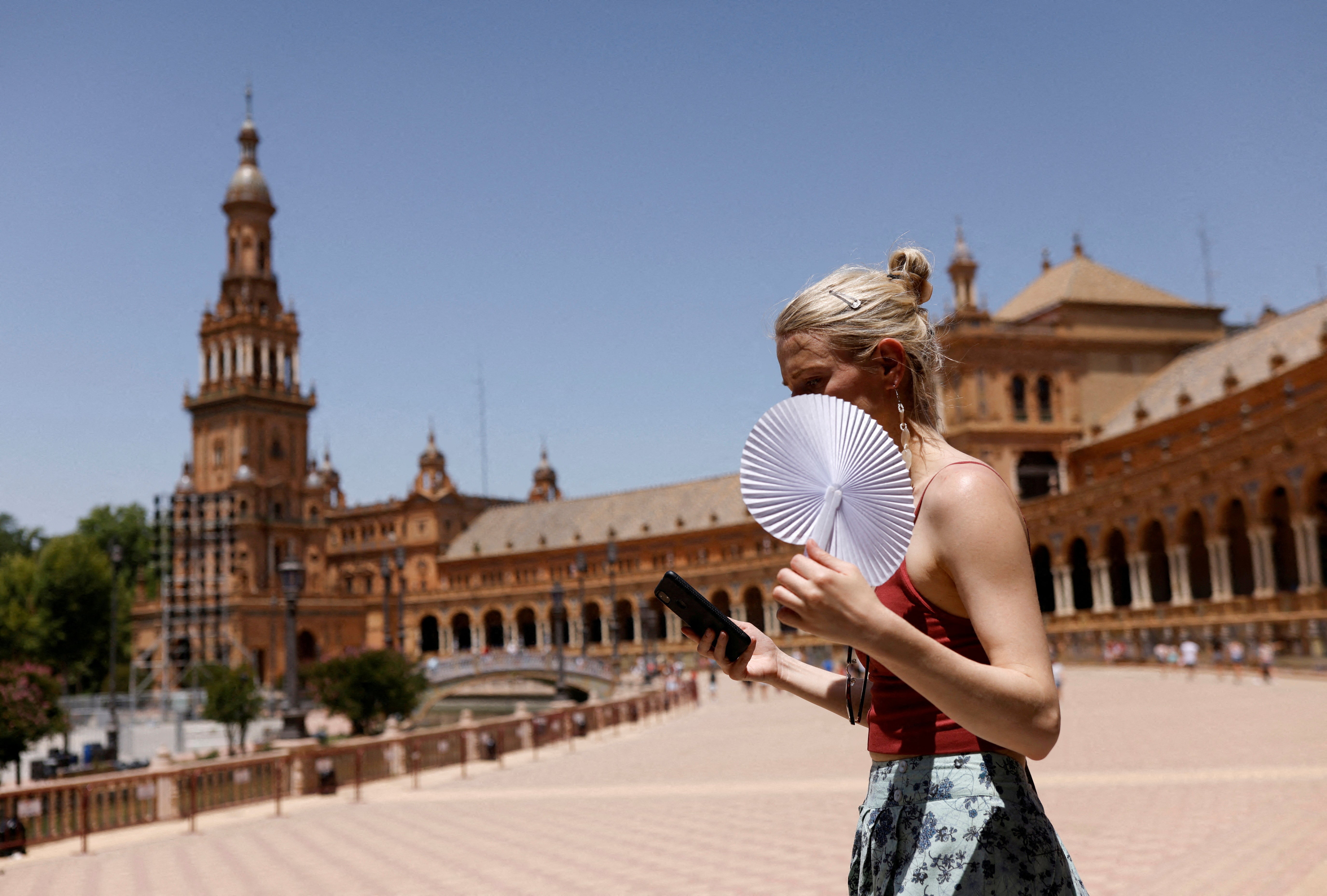Seville to name and classify heatwaves in ‘world first’ to highlight climate threat
Initative comes weeks after Spain recorded earliest heatwave in over 40 years

Your support helps us to tell the story
From reproductive rights to climate change to Big Tech, The Independent is on the ground when the story is developing. Whether it's investigating the financials of Elon Musk's pro-Trump PAC or producing our latest documentary, 'The A Word', which shines a light on the American women fighting for reproductive rights, we know how important it is to parse out the facts from the messaging.
At such a critical moment in US history, we need reporters on the ground. Your donation allows us to keep sending journalists to speak to both sides of the story.
The Independent is trusted by Americans across the entire political spectrum. And unlike many other quality news outlets, we choose not to lock Americans out of our reporting and analysis with paywalls. We believe quality journalism should be available to everyone, paid for by those who can afford it.
Your support makes all the difference.Seville has launched a new pilot project to name and classify the frequent heatwaves that hit the southern Spanish city.
The pioneering system will include three categories and will alert the population up to five days in advance of extreme heat, the town’s mayor Antonio Muñoz announced.
He said: “We are the first city in the world to take a step that will help us plan and take measures when this type of weather event happens.”
In a similar system to the naming of major storms, heatwaves will be given titles in reverse alphabetical order. The first five will be called Zoe, Yago, Xenia, Wenceslao and Vega.
The project has been developed in colloaboration with with the Adrienne Arsht-Rockefeller Foundation Resilience Centre (Arsht-Rock) and a network of meteorological, scientific and academic organisations.
Seville, located in the Guadalquivir River valley in Andalusia, is one of Spain’s hottest places, with temperatures easily surpassing 40C during the summer. It is feared heatwaves and droughts will become more frequent.
In recent weeks, several wildfires have broken out in Spain, which registered its earliest heatwave in more than 40 years, with temperatures rising to 43C in cities like Seville and Cordoba.
“This new method is intended to build awareness of this deadly impact of climate change and ultimately save lives,” said Arsht-Rock director Kathy Baughman McLeod.
A handful of other cities worldwide, such as Melbourne, Athens and Los Angeles, are also working on similar plans to use weather data and public health data to categorise heatwaves.
Join our commenting forum
Join thought-provoking conversations, follow other Independent readers and see their replies
0Comments